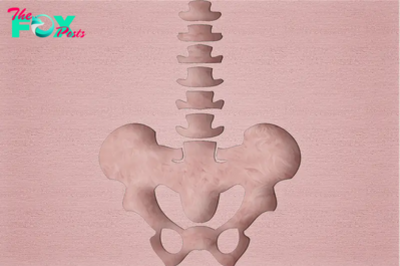Health
What to Know About How Lupus Affects Weight
The 1.5 million Americans estimated to have the autoimmune disease lupus already have plenty to manage—what with the pain, fatigue, hair loss, and heart problems the condition can cause. So, the last thing they need is to feel stigmatized or shamed because of their weight. But that’s exactly what has happened to celebrities with lupus like Selena Gomez.
In February 2023, the actor and singer shared with her social media followers that she tends to gain weight while taking certain medications to manage her condition and lose weight when she can stop taking those meds.
This side effect is just one of several ways lupus (also called systemic lupus erythematosus) is linked to changes in weight. Here, a deeper look at that connection and how to cope.
Why lupus can cause weight gain
There are several reasons lupus is linked to rising numbers on the scale—not always due to an increase in body fat.
Sometimes, it’s fluid retention. “Fluid can accumulate in people with lupus if they have, for example, renal failure from lupus nephritis or heart failure,” says Dr. Kyriakos A. Kirou, attending physician in rheumatology at Hospital for Special Surgery and associate professor of clinical medicine at Weill Cornell Medicine in New York City.
If that’s the case, diuretics and other treatments for the underlying disorder usually resolve the fluid retention too, he says.
But more frequently, the issue is fat accumulation. And in that case, the primary culprit is the use of corticosteroids, a first line of treatment for moderate to severe lupus, says Dr. Diane Kamen, a member of the Lupus Foundation of America’s Medical-Scientific Advisory Council and a professor of rheumatology at the Medical University of South Carolina.
Short-term use of steroids such as prednisone can cause fluid retention right away, she says. But longer-term use of these medications can redistribute fat in a person’s body and increase apPetite.
Read More: The Most Exciting New Advancements in Managing and Treating Lupus
“My colleagues and I, who specialize in the treatment of lupus, often think about systemic steroids as a necessary evil in the sense that they can be life-saving and organ-saving. There are many situations where we really do need to use those medicines,” says Dr. Sarah Patterson, a rheumatology physician-scientist and assistant professor at the University of California, San Francisco. “However, when they’re used over the long term, they very commonly result in not only weight gain, but also unHealthy changes in body composition.”
This process isn’t entirely understood, but it may have something to do with the steroids slowing down a person’s metabolism, she says. The meds also seem to contribute to a decrease in muscle mass, which further tilts a person’s body composition away from lean tissue, she adds. That’s troubling news, because the negative health effects that may come with more body fat than lean mass start to affect people with lupus at a lower body mass index than people without the condition.
The underlying mechanism, of course, isn’t at the forefront for most people with lupus. “For the majority of patients, even though it’s helping with their underlying lupus, it’s not a welcome side effect to have that weight gain and appetite revved up,” Kamen says.
Other medications used to treat lupus symptoms like depression, fatigue, and muscle pain may also cause weight gain as a side effect, Kirou adds. Or they may disrupt sleep by causing acid reflux or frequent urination, thereby waking up patients throughout the night and affecting weight, Kamen adds. “Once your circadian rhythm is off, that messes up your whole metabolism and your ability to manage your weight,” she says.
More in Health
- 6 Tips for Life-Changing Sleep
- What to Expect at an Annual Physical
- The Surprising Health Benefits of Pain
- The Best Thing to Do for Your Gut Health
- Is Venting Healthy, Or Does It Make Things Worse?
Then there’s physical activity: Many of the symptoms of lupus, such as joint pain, fatigue, and depression, may make patients less likely to exercise regularly, Patterson adds, which could contribute to weight gain over time.
How concerning is weight gain?
Body size alone doesn’t always mean ill health, but obesity can spark inflammation that may exacerbate lupus. Excess weight is also associated with a risk of heart problems. “As lupus itself can [raise] the risk of cardiovascular events, this additionally increases the risk,” says Dr. Michelle Petri, director of the Johns Hopkins Lupus Center in Baltimore.
It’s excess fat in particular that’s troublesome, “specifically the excess visceral fat, that is associated with worse health outcomes,” Patterson says. Visceral fat is the deep abdominal fat that accumulates around the midsection (giving people what’s sometimes referred to as an “apple-shaped” look). The fat surrounds internal organs, increasing the risk of diabetes, heart disease, and stroke. “I find that emphasis to be more helpful, both because it’s more accurate, but also because it takes the emphasis off of what the number is on the scale.”
Read More: What to Know About Complementary Treatments for Lupus
Why lupus can cause weight loss
It’s also possible for people with lupus to unintentionally lose weight. Every patient is different, but it’s somewhat common to lose your appetite with active lupus, Kamen says. This can sometimes lead to significant weight loss.
“Active lupus can cause weight loss, also called cachexia,” Petri says, or body wasting. This is more common when someone is very sick, which might happen at their initial diagnosis or during a severe flare, Patterson says. “Body wasting” essentially means a patient’s body is fighting so hard it’s using up its own fat and muscle stores to combat the underlying disease.
Certain medications for lupus may cause loss of apPetite, diarrhea, or nausea that make it less appealing to eat and harder to keep food down, Patterson says, thereby contributing to weight loss over time. Plus, some people dealing with depression symptoms may find they lose their apPetite and lose weight, even though others may gain weight, she adds.
How concerning is weight loss?
The problem with unintentional weight loss is when it goes so far that lupus patients become weak, under-nourished, and more vulnerable to infection, Petri says.
It can also leave people more likely to fall or get injured, as well as to develop bone problems. “With lupus in general, there’s already an increased risk of developing osteoporosis at an earlier age,” Kamen says. “But being underweight is also a major risk factor for osteoporosis, so it [may] more rapidly bring on that increased fracture risk.”
How to cope with weight changes
Kirou likes to bring up weight changes whenever a patient is starting steroid treatment, to make sure they’re aware that this may be an even more important time to prioritize Healthy habits like eating plenty of fresh produce, drinking enough water, getting regular physical activity, and paying a little closer attention to their weight.
That said, there isn’t much research examining the effectiveness of various weight-management strategies in people living with lupus. And the studies that do exist don’t support following any particular diet or exercise program.
Still, there are other benefits to maintaining healthy lifestyle habits for people with lupus. Patterson focuses on the importance of physical activity in managing mental health symptoms. In some of her research, for example, she found that people with lupus who described themselves as inactive or sedentary were more likely to develop depression in the future than folks who didn’t. She uses these results to bolster discussions with patients. “Even just doing very, very light activity on a regular basis, like a 20-minute walk around the neighborhood, is protective, and people who do that kind of thing are much less likely to develop depression over the long term,” she’ll tell them.
Read More: How Changing Your Diet Could Have a Major Impact on Managing Lupus Symptoms
Rather than encouraging patients to reach a specific number on the scale, she recommends focusing on their goals. She’ll ask: “Are you able to do the things you want to do? And if not, how can we work toward achieving those specific goals?” For some people, the goal is to play soccer with their kids. For others, it’s to be able to go up and downstairs independently. It’s not uncommon for rheumatologists to refer patients to physical therapists and registered dietitians for additional support, she says.
While there is no one “lupus diet” those dietitians would prescribe, Kamen suggests leaning toward whole, nutrient-dense options. “I always tell patients to try to shift away from those packaged, ultra-processed foods, because they really are doing more harm than good.”
Some patients might benefit from discussing glucagon-like peptide-1 receptor agonists with their providers, Petri says. These medications, marketed under brand names like Ozempic and Wegovy, have been shown in preliminary research to lower body mass index without triggering an above-expected number of flares in people with lupus.
It's also important to keep in mind that weight fluctuations are often temporary. “Changes in body size can be very concerning and almost destabilizing in the moment,” she says. “Most of my patients, who, for example, come off of steroids after an acute, severe flare, are able to lose a lot, if not all, of the weight that they gained.” People who lost a lot of weight before a diagnosis or during a flare often gain back what they’d lost once their lupus is treated, she adds.
-

 Health3d ago
Health3d agoKnee problems tend to flare up as you age – an orthopedic specialist explains available treatment options
-

 Health3d ago
Health3d agoThe second Trump presidency could mean big changes for health insurance in Colorado
-

 Health3d ago
Health3d agoJared Polis praises Trump for choosing anti-vaccine activist Robert F. Kennedy Jr. as health secretary
-

 Health3d ago
Health3d agoJohn Cena’s Workout Routine And Diet Plan: How The WWE Superstar Stays In Shape
-

 Health4d ago
Health4d agoHow will Donald Trump’s presidency affect abortion rights in Colorado?
-

 Health5d ago
Health5d agoWeight loss plans are less effective for many Black women − because existing ones often don’t meet their unique needs
-

 Health5d ago
Health5d ago10 Rules for Post-Election Conversations
-

 Health5d ago
Health5d agoIn hundreds of communities across the US, finding a dentist is like pulling teeth − but in 14 states, dental therapists are filling the gap



























